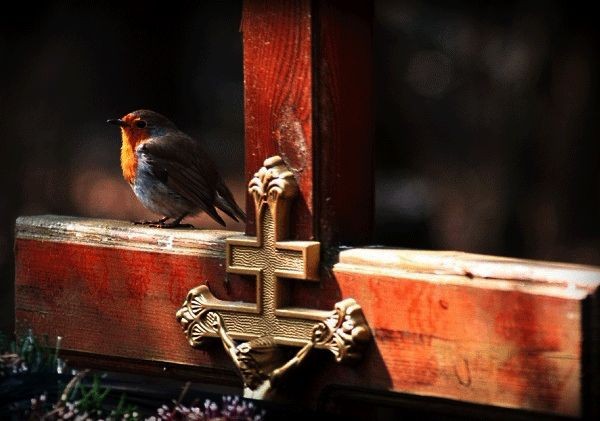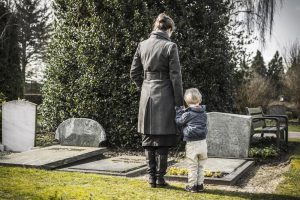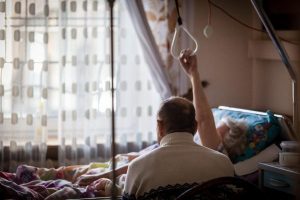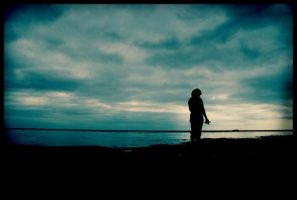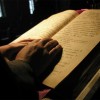Death is inevitable and the clock is ticking. At 65 I am no spring chicken, as the saying goes. But as I grow older and have aches and pains and various health issues come along, I have for the first time been hearing that ticking clock, the one that all of us eventually hear.
A doctor friend of mine made the observation that the greatest hazard to your life is conception, because it is a death sentence. From the moment we are born, we begin to die. The best way to approach the inevitability of your own death is to face it head on. Our culture fears death, avoids the thought of death, masking it when it does happen.
 My best friend in college died a number of years ago. Although he was Orthodox Christian, his family had him cremated, so there was no final kiss, no burial, no closure. Following the funeral in the parish church, his priest and I joined his family and friends at an art gallery where his work was often featured. While mingling with his wife, son, and their friends, I happened upon a small box sitting on a pillar meant for a sculpture. Looking closely, I saw decoupaged photos of my friend’s life. Among them was a photo of the two of us taken back in the ‘60s, during our college days. Looking around to make sure no one was looking, I lifted the box in order to take a closer look at the photo. Instantly I knew it was my friend’s ashes, given the weight of the box. Laughing to myself, I knew he’d have been amused at the site of me discovering I was holding his remains in this small box.
My best friend in college died a number of years ago. Although he was Orthodox Christian, his family had him cremated, so there was no final kiss, no burial, no closure. Following the funeral in the parish church, his priest and I joined his family and friends at an art gallery where his work was often featured. While mingling with his wife, son, and their friends, I happened upon a small box sitting on a pillar meant for a sculpture. Looking closely, I saw decoupaged photos of my friend’s life. Among them was a photo of the two of us taken back in the ‘60s, during our college days. Looking around to make sure no one was looking, I lifted the box in order to take a closer look at the photo. Instantly I knew it was my friend’s ashes, given the weight of the box. Laughing to myself, I knew he’d have been amused at the site of me discovering I was holding his remains in this small box.
Since my friend was not responsible for the cremation, an Orthodox service was allowed. His priest and I had a long discussion about the American way of death, how we send our dying family members off to hospitals or hospices, keeping the unpleasantness of death out of sight. We fear death; we avoid looking at it. Cremation is a convenient way of denying the reality of death because there is no body. Yet we Orthodox know that a burial service with an open coffin and graveside service are of benefit to friends and family because the whole process helps with closure.
Lowering the casket into the ground while everyone is there and allowing each person to drop a handful of earth into the grave, is a wonderful way of walking ourselves through the grief process. Denying the reality of death by hiding it from our consciousness only promotes a longer period of grief.
I have chosen the site of my own burial on the grounds of the monastery and I hope to have simple pine box built while I can still look at it. Sitting it up in a corner of my cabin would allow me to use it as a storage space before my death. I once heard of a man who used his pre-need coffin as a wine rack.
Facing my own mortality better prepares me for that moment when will be standing before God, accounting for my life. I’m not in a hurry, mind you. I’m praying God will give me many years more for repentance. However, it is good that I think about my own death, for avoidance will not prolong my life, but it can make me put off repentance.












